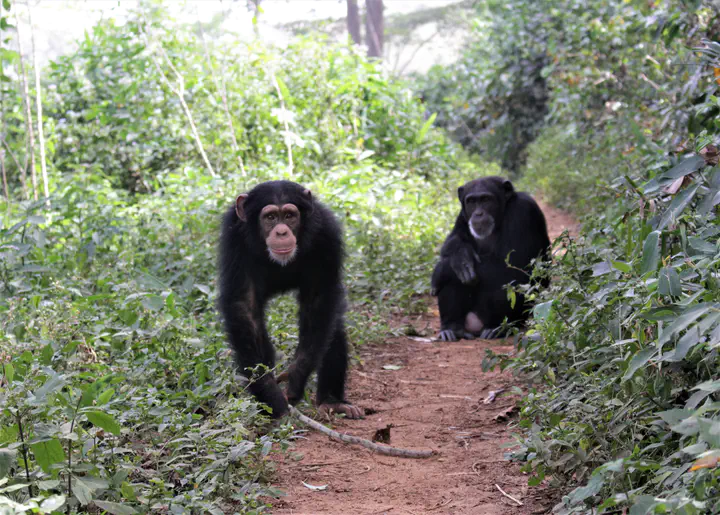Primate Archaeology Beyond Technology
 Image credit: K. Almeida Warren
Image credit: K. Almeida WarrenSince the 1960’s, human origins studies have benefitted greatly from research into the lives of one of our closest primate relatives, the chimpanzee. The burgeoning field of Primate Archaeology has further enriched our archaeological understanding of our past by providing a window into the technical behaviours of our earliest ancestors; from stone tool use, to ephemeral plant-based technologies that likely predate the current archaeological record. Yet, while we know the entirety of human existence cannot be reduced to our technological achievements, little is known about how other aspects of our ancestor’s lives (e.g., water sourcing, foraging, shelter construction) may have also produced long-lasting traces. Such behaviours would have been fundamental to early human activities and survival but remain archaeologically elusive.
With the central goal of establishing a novel framework for the identification of non-technological traces in the early human archaeological record, this project is taking Primate Archaeology one step further by conducting the first archaeological investigation of non-technological chimpanzee behaviour. It will answer three core questions:
- What characterises chimpanzee behavioural traces?
- What is their potential for archaeological preservation?
- How do these cultural traces differ among neighbouring chimpanzee communities and distant subspecies?
In documenting the cultural heritage of chimpanzees, this project will also play a pivotal role in gaining a better understanding of the potential roles of culture in conservation, critical for the preservation of chimpanzees, their cultures, and environments, which are under increasing threat.